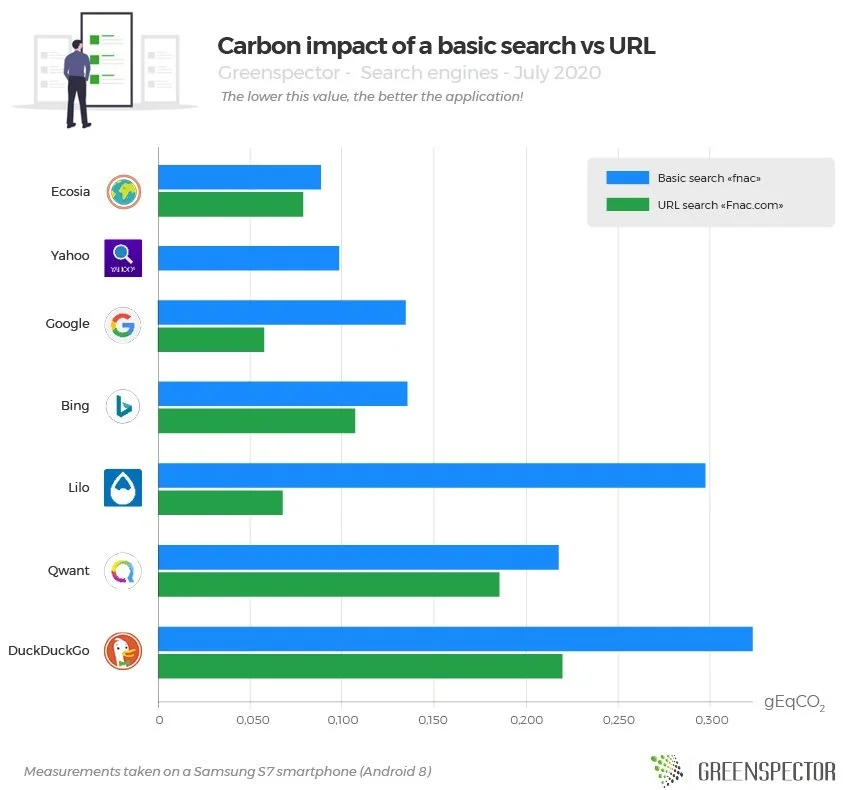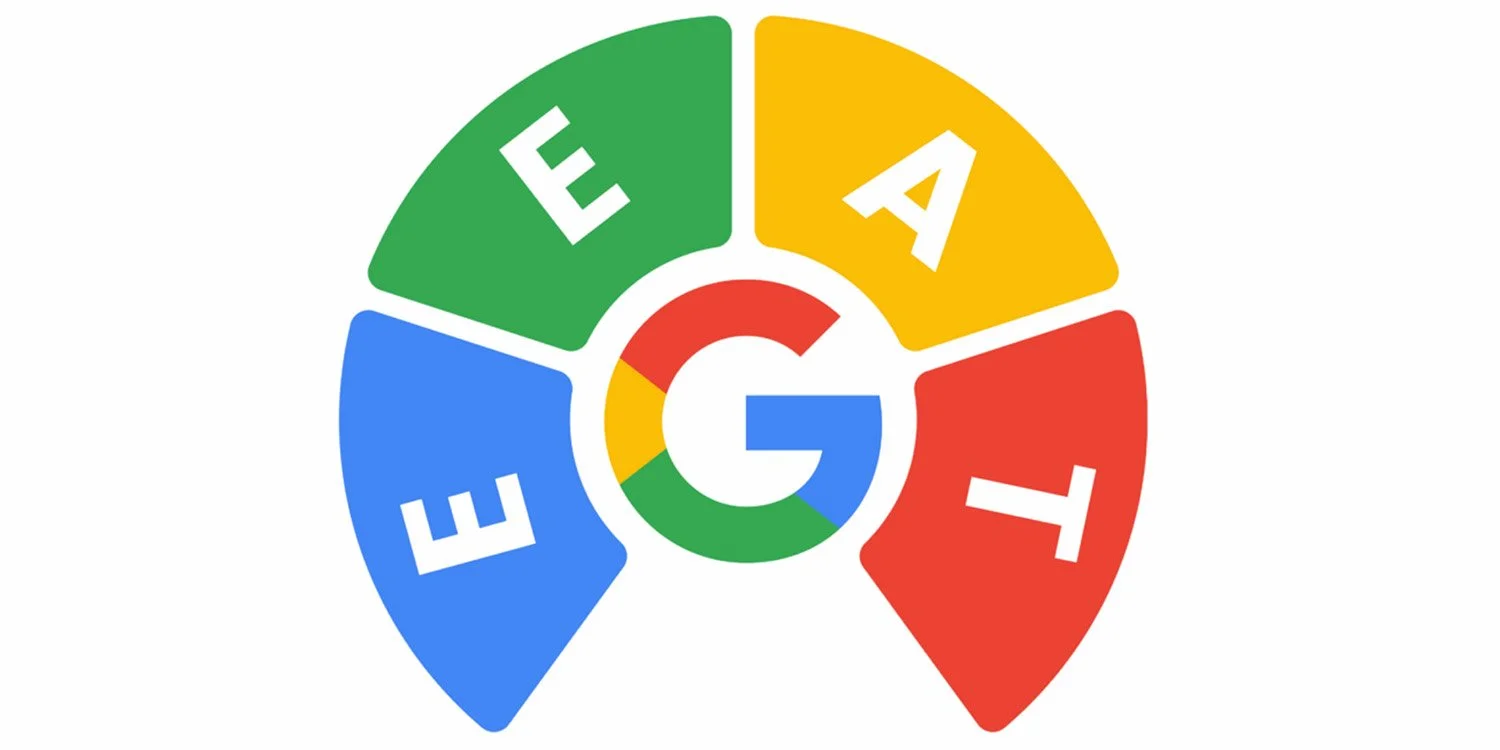New Year, New Outlook on Digital Sustainability: How to Leverage SEO to Decrease Your Carbon Footprint
Digital sustainability focuses on reducing the environmental impact of online activities. Optimizing your SEO can help improve your online presence while supporting a greener digital future.
As we enter a new year, many of us are thinking about the choices we can make to decrease our carbon footprint by focusing on sustainable practices. Now, some of these, are quite obvious, especially in our day to day lives. We should:
Opt to food shop locally, organically and seasonally
Avoid fast fashion, champion second-hand finds
Reuse, Recycle, Repurpose
Cut down on meat and dairy products (or cut them out completely)
Conserve water and energy
But what about our digital lives? How can we navigate these in a way that is more sustainable for the environment, our businesses and the long-term outlook on it all?
Digital sustainability is another area where we can make a significant difference—reducing energy consumption, emissions, and waste in our online activities.
Google has stated that, a single search is the energetic equivalent of turning on a 60W light bulb for just 17 seconds. More than 8.5 billion searches are entered into the search engine every day – at .02g of C02 per search, the scale of greenhouse gas emissions is frightening.
Source: Greenspector
As the digital world starts relying more and more heavily on AI – especially as a means to cut costs and corners – we are looking at another issue, a bigger increase in data collection and storage and therefore, increased energy consumption.
This is because, a lot of companies are using AI in all the wrong ways. Instead of finding ways to decrease their impact, they are increasing it by creating unnecessary digital products or content, focusing on quantity, rather than quality.
It's no wonder – at the onset of the SEO revolution, many of us were advised to practice of “keyword stuffing” and creating content purely with this purpose in mind. Suddenly, the pressure was on to create and post three blogs articles a week, regardless of whether your organization actually had anything to say or not.
But what was relevant then, no longer applies now. The model we are moving towards – and that fits in line perfectly with the concept of sustainability – is less is more.
You can make an impact with a bi-weekly or even a monthly blog post provided it is relevant, of great quality and written and formatted in accordance to SEO guidelines.
How Can SEO Drive Digital Sustainability and Reduce Carbon Emissions?
Starting with the basics, let’s use a classic example of how investing in foundational and on-going SEO services can help you reduce your organization’s carbon emissions.
Don’t make people work too hard to find you
This should be a given, but it’s only with the help of SEO that this becomes a fact. Unless your website is structured and populated in accordance to Google guidelines, the platform will not recognize it as a relevant site.
So what happens? Well, what do you do when you can’t find what you’re looking for? You keep looking. And clicking. And opening pages that aren’t even of interest to you. That’s a lot of light bulbs you’re turning on for nothing.
By ensuring your website is set up to reach the audience you want to attract, your organization is reducing its carbon emissions in a small but significant way.
Get more out of less content
Going back to the philosophy of less is more in terms of content: how can we get more out of our monthly blog post? Well, for one, the fact that you are allowing yourself or your team more time to be mindful about content creation, will automatically translate into better quality too.
From one single blog article of 800 – 1500 words, you can then create up to five recycled and/or social media posts and even create an entire email campaign (i.e. newsletter) around it. How’s that for making a little go a long way?
In adopting this practice, not only are you putting out focused content designed and created to reach your audience and promote your services, but you are also in a position to make a social impact.
Focus on Inclusivity & Accessibility
If it’s one thing that we’ve learned through years of experience working for the non-profit sector, it’s that a lot of people get overlooked in terms of website accessibility. When we speak of an optimal user experience this should always be inclusive. Period.
This means paying special attention to readability not just in terms of structure and style – i.e. formatting, spacing, fonts, etc. – but also language. Consider the language you are using and how you are addressing people to ensure it is inclusive and not at risk of alienating your audience.
Tools like UserWay, WAVE Web Accessibility Evaluation Tool, and WebAIM’s Contrast Checker can help optimize your site for inclusivity, reducing negative impacts on underrepresented users.
An inclusive and accessible website contributes to sustainability by improving user experience, reducing bounce rates, and minimizing the need for users to click through multiple pages to find information.
Keeping Google Happy: What is E-E-A-T and Why is it Important?
Getting high into Google’s ranks is like applying for college: the platform wants to know who you are, what you’re all about and whether you’re worthy of getting a spot on its prestigious platform.
To give you some guidelines as to what it’s looking for, it created the acronym E-E-A-T, which acts as a type of checklist – all of the boxes of which you your organization’s website must be able to check off before it is accepted into the top league of ranking.
Experience
If you’ve experimented with Chat GTP, you’ll know that, while our new AI friend has a wealth of knowledge, it doesn’t always mean it gets the facts right. Or straight. Or easily digestible when reworded. Hence, first-hand author experience is the newest Google criteria that must be complied with to be recognized as a legit website.
Expertise
Google wants to see that you truly know what you’re talking about and not just regurgitating what you may have picked up from other, less-authoritative websites or from an AI summary.
Authoritativeness
You may have the knowledge but do you have the authority to discuss this particular subject? What makes you an expert? What references do you have? You need to be able to back up your authority and claims with a solid bio, CV, backlinks to relevant platforms etc.
Trustworthiness
It should go without saying that trustworthiness is the most important criteria. Can a visitor to your website trust not only your content and the things you are communicating as facts, but also on how you will be using their data?
Google’s E-E-A-T criteria is extremely important, especially now that more and more companies and organizations are utilizing AI to get jobs done that it has no business doing: i.e. attempting to xxx a human connection and service.
Visitors need to know that there is a real human behind the words they are reading, the product they are looking to invest in and, most importantly, the customer service they will receive during the working relationship.
Let Us Set You Up for Digital Sustainability and Professional Greatness
If you’d like to set 2025 off on the right foot and along a path towards sustainability, let us help you by reviewing your website and SEO, and setting you up according to Google’s E-E-A-T criteria.
We offer SEO packages for all levels and budgets, starting from the foundation all the way up to full or quarterly maintenance.
Sustainable Digital can also help you to refine or establish your branding aesthetic to ensure that, even with minimal digital output, you are reaching a wide audience through visual engagement and recognition.
Let’s set your business on a path to digital sustainability in 2025. We will help you reduce your carbon footprint while reaching your audience effectively.
Get your first New Year’s resolution on the calendar. Let’s set up a call to discuss how we can help you achieve your goal.




